
Can Dogs Have Raspberries? A Step-by-Step Guide for Owners
Overview
Have you ever worried about your dog's health? As a caring dog owner, you want to ensure your furry friend enjoys a balanced diet. Good news! Dogs can safely eat raspberries in moderation. These delightful berries are not just tasty; they provide essential nutrients like vitamins C and K, antioxidants, and dietary fibre.
Moreover, the health benefits of raspberries for dogs are significant. They can support your dog's overall well-being, but it's crucial to introduce them properly. This helps avoid potential digestive issues or allergic reactions. Remember, moderation is key!
In addition, by incorporating raspberries into your dog's diet thoughtfully, you're taking a step toward enhancing their nutrition. So, why not consider treating your pup to this berry delight? With the right approach, you can ensure their health and happiness.
Introduction
As a pet owner, have you ever found yourself excited yet anxious about trying new treats for your furry friend? Raspberries, with their vibrant colour and sweet flavour, might catch your eye as a delightful option. But you may wonder: can dogs safely enjoy these berries? This guide explores the nutritional benefits of raspberries, providing insights on how to introduce them into your dog's diet while being mindful of potential risks.
As you seek to enhance your pet's health, understanding the balance between delicious treats and safety is essential. Moreover, what precautions should you take to ensure that this fruity delight becomes a healthy addition to your canine's diet? Let's delve into the world of raspberries and discover how they can be a part of your dog's healthy lifestyle.
Understand the Nutritional Benefits of Raspberries for Dogs
Have you ever worried about your dog's health? You want the best for your furry friend, and that includes what they eat. These berries make one wonder, can dogs have raspberries, as they are not only a delightful treat for pets but also a powerhouse of essential nutrients. You may ask, can dogs have raspberries, as they can be a wonderful addition to your dog's diet, providing numerous health benefits without excessive calories.
These berries are particularly rich in:
- Vitamins: Raspberries are an excellent source of Vitamin C, which bolsters the immune system, and Vitamin K, crucial for blood clotting and bone health.
- Antioxidants: These compounds play a vital role in combating oxidative stress, potentially lowering the risk of chronic illnesses in canines.
- Dietary Fibre: High fibre content aids digestion and helps maintain a healthy weight by promoting a feeling of fullness.
- Low in Calories: With only 4% sugar, these berries are a low-calorie choice, making them an ideal treat for canines, especially those needing to manage their weight.
When provided in moderation, these berries can be a nutritious enhancement to your dog's diet, which raises the question: can dogs have raspberries? Suggested portion sizes are 2-3 berries for small dogs, up to 5 for medium dogs, and a maximum of 10 for large dogs. It is essential to wash these berries thoroughly before giving them to your dog to eliminate any pesticides. Experts note that while considering if can dogs have raspberries, these berries can support your dog’s immune system, reduce inflammation, and aid digestion, making them a healthy bonus rather than an essential part of their diet.
To enhance your dog's health management, consider using Scooch's AI-powered health assistant. This tool can provide personalised treatment plans and reminders for optimal care. Moreover, it can help monitor your dog's reaction to berries, ensuring any potential digestive upset or allergic responses are promptly addressed. Remember, moderation, awareness of potential risks, and veterinary consultation are key factors in safely including these fruits in your dog’s diet. Together, we can ensure your beloved pet stays healthy and happy.
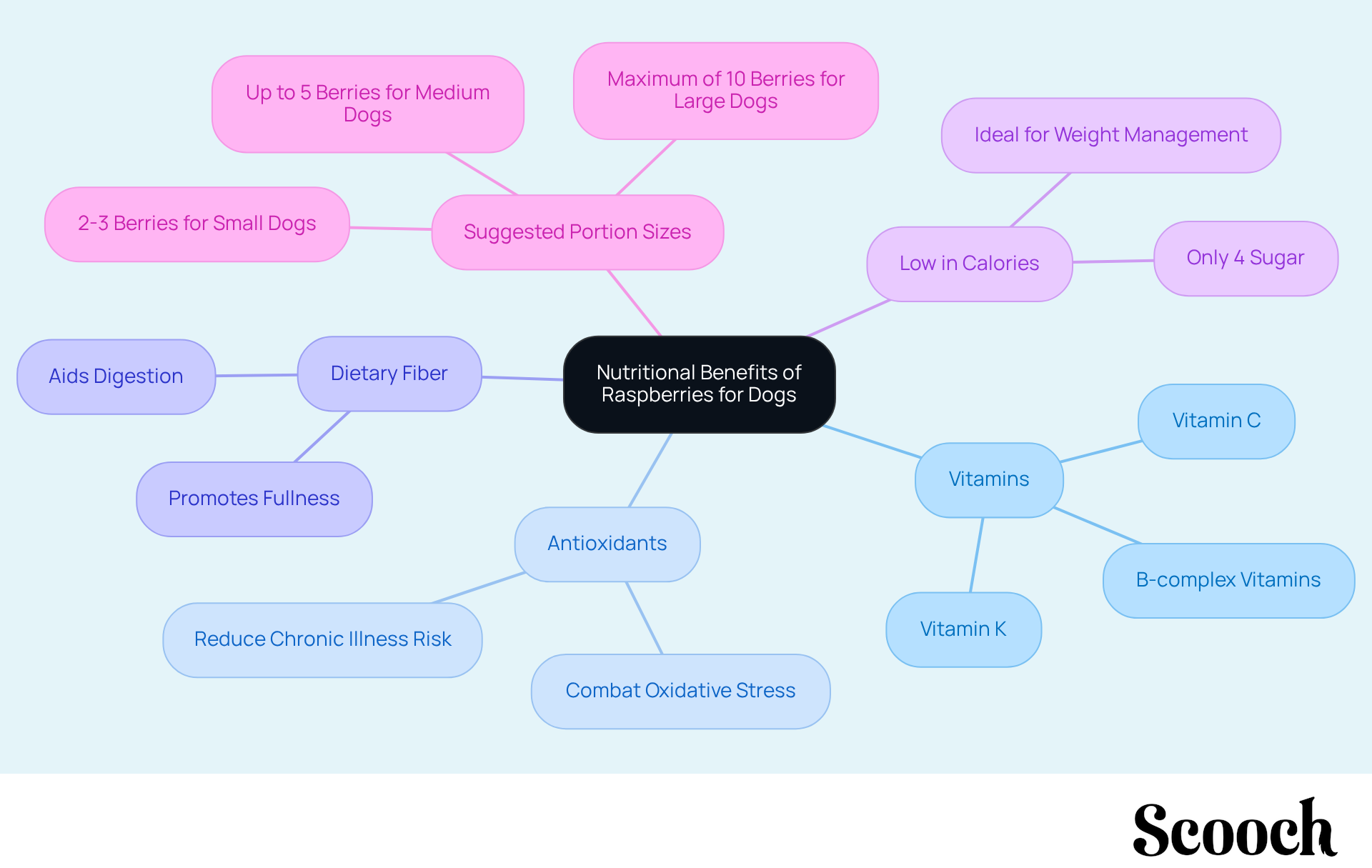
Follow Steps to Safely Introduce Raspberries to Your Dog
When considering if dogs can have raspberries, introducing them to your furry friend can be a delightful experience, but it’s important to do it safely. Have you ever worried about your dog's health when trying new treats? Here’s a caring guide to help you navigate this process with confidence.
-
Choose Fresh Berries: Start by selecting ripe, fresh berries from a reliable source. Avoid any that are mouldy or overly soft; your dog's health is paramount.
-
Wash Thoroughly: Rinse the berries under cool water to eliminate any pesticides or contaminants. Your pup deserves the best!
-
Start Small: Begin with just one or two berries, especially if it’s your dog's first experience with this fruit. It’s a gentle introduction that can help you gauge their reaction.
-
Observe for Reactions: After feeding, keep an eye on your dog for any signs of digestive upset or allergic reactions, such as vomiting or diarrhoea. Remember, moderation is key; excessive amounts can lead to stomach discomfort.
-
Gradually Increase Amount: If your dog enjoys the berries without any issues, you can gradually increase the quantity. For small dogs, limit it to 1-2 berries; larger dogs can have up to 5. Just be mindful that fruit intake should not exceed 10% of your dog's daily caloric needs.
-
Incorporate into Meals: Consider mixing these berries into your dog's regular food or offering them as a treat during training sessions. Avoid fruit jam, as it often contains added sugars and harmful ingredients like xylitol.
-
Frozen Berries: If you choose to use frozen berries, ensure they are plain. Thaw them slightly or mash them to prevent choking hazards, especially for smaller pets.
-
Nutritional Benefits: These berries are packed with vitamins C and K, dietary fibre, and antioxidants that can support your dog's overall health. Isn’t it wonderful to know that a simple treat can be so beneficial?
By following these steps, you can confidently introduce raspberries into your dog's diet, ensuring they enjoy a tasty and healthy treat!

Identify Risks and Precautions When Feeding Raspberries to Dogs
As a dog owner, have you ever wondered, can dogs have raspberries as a healthy treat for your furry friend? While they can indeed be a delightful snack, it’s important to consider some potential risks to ensure your dog's safety and well-being:
- Xylitol Content: Raspberries contain a small amount of xylitol, a natural sweetener that can be toxic to dogs in large quantities. Fortunately, the xylitol level in these berries is minimal and typically poses no threat unless consumed in excessive amounts.
- Digestive Upset: Overindulging in the fruit may result in gastrointestinal problems like diarrhoea or vomiting. To avoid these issues, always adhere to moderation when offering this fruit. Raspberries should not exceed 10% of a dog's daily calorie intake.
- Allergic Reactions: Although uncommon, some dogs may show allergies to certain fruits. Symptoms can include itching, swelling, or gastrointestinal distress. If any negative reactions arise, it is essential to cease providing raspberries and seek advice from your veterinarian.
- Choking Hazard: Ensure that the berries are appropriately sized for your dog, particularly for smaller breeds, to prevent choking incidents. Cutting or mashing the berries can help mitigate this risk.
- Wild Berries: Avoid giving wild berries to canines, as some can be toxic. Always choose supermarket-purchased berries to ensure safety.
- Washing: Thoroughly wash raspberries before feeding them to dogs to remove any pesticides or contaminants, reducing the risk of food-borne illness.
By keeping these considerations in mind, you can safely offer your dog a tasty treat and consider if can dogs have raspberries while prioritising their health. Always remember, moderation is key!
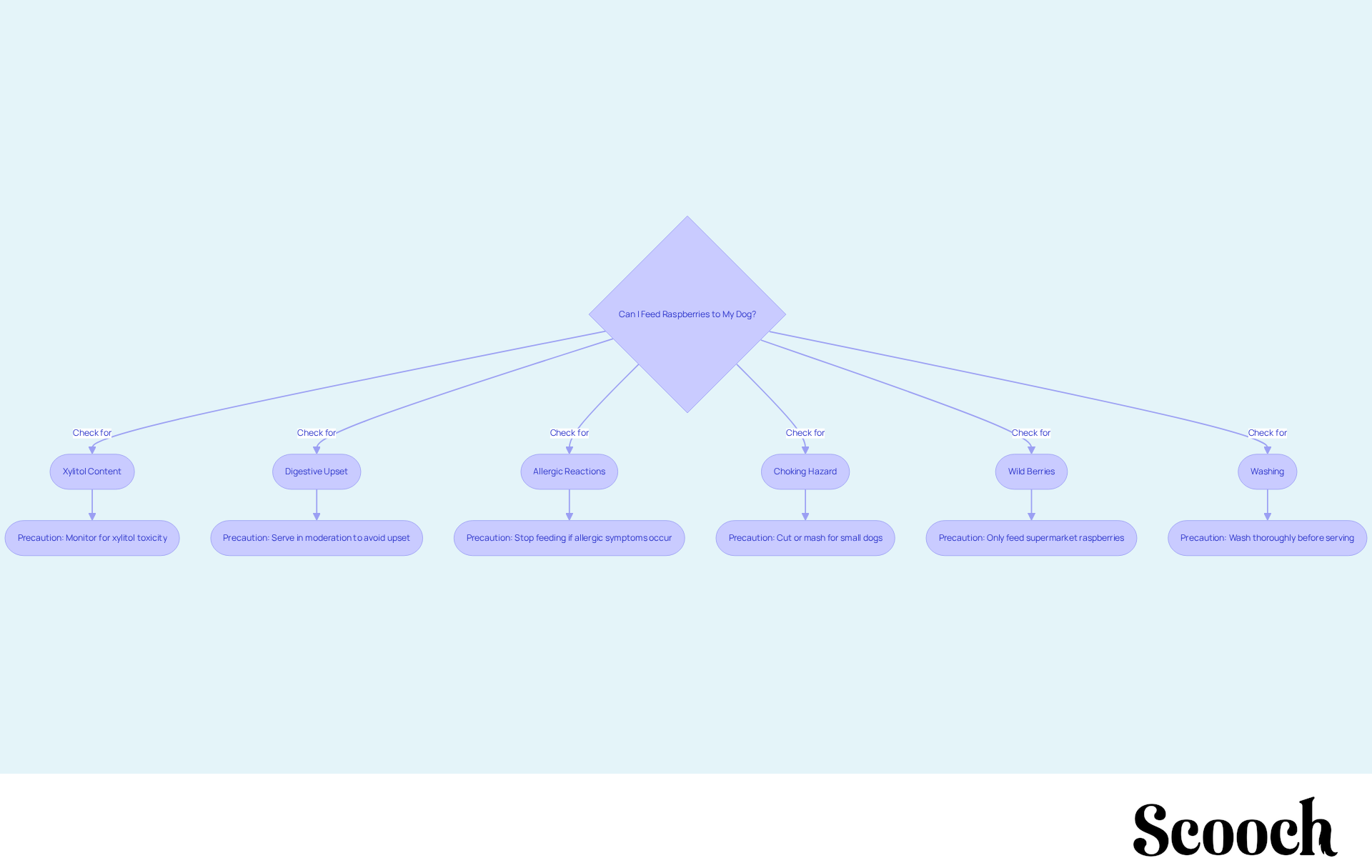
Access Resources for Ongoing Dog Health Management with Raspberries
To effectively manage your dog's health and nutrition, have you ever considered utilising the following resources?
- Veterinary Consultation: Regular cheque-ups with your veterinary are essential for tailoring your dog's diet to their specific health needs, ensuring they receive the right nutrients.
- Scooch Health App: Imagine having an award-winning mobile application at your fingertips. Scooch provides personalised suggestions, reminders, and wellness tracking features. With round-the-clock access to video veterinarians and the ability to track your dog's well-being, this app is a vital resource for tech-savvy dog owners. Notably, 79% of Britons claim they would rely on an app to monitor their pet’s health, highlighting the growing trend of using mobile dog apps for ongoing health management.
- Educational Websites: Websites like the American Kennel Club (AKC) and PetMD offer important information on dog nutrition, including advice on safe fruits such as berries and general dietary suggestions.
- Books on Canine Nutrition: Explore literature authored by veterinary nutritionists that focus on the dietary requirements of dogs. These resources can help you understand how to incorporate treats like raspberries into a balanced diet and address the question of can dogs have raspberries.
- Online Forums and Communities: Engage with fellow dog owners in online forums to exchange experiences and tips on safely integrating fruits into your dog's diet, fostering a supportive community for pet care. Additionally, consider the benefits of Scooch's vet-formulated health supplements, which are designed to enhance your dog's overall well-being.
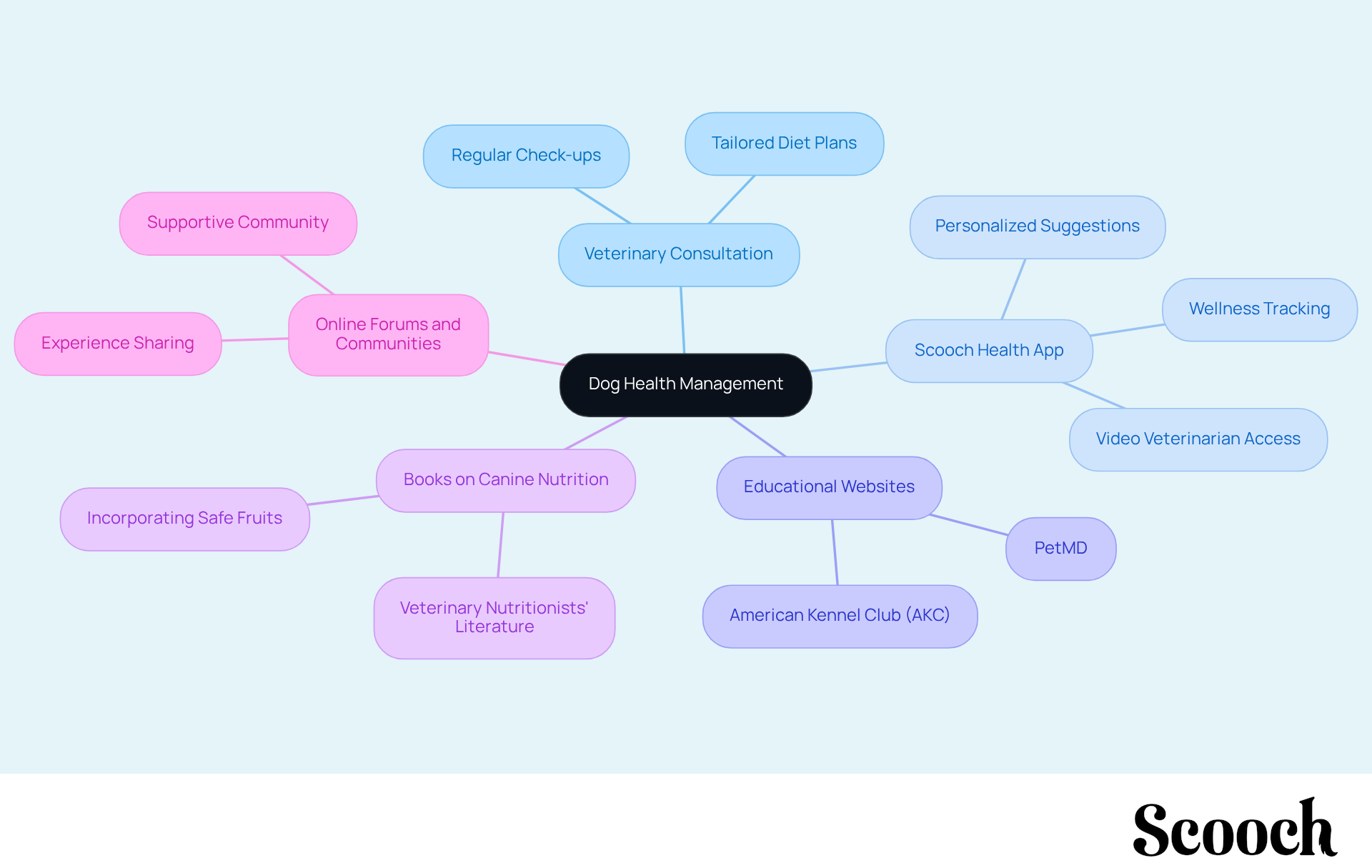
Conclusion
Raspberries can be a delightful and nutritious treat for dogs, offering a range of health benefits when introduced safely and in moderation. Have you ever worried about your dog's health? By understanding their nutritional value, you can confidently incorporate these berries into your pet's diet, ensuring that your furry friend enjoys both the taste and the health perks associated with this fruit.
To safely introduce raspberries to dogs, it’s essential to follow a few steps:
- Selecting fresh berries
- Washing them thoroughly
- Observing for any adverse reactions
Moreover, moderation is key; raspberries should not exceed 10% of a dog's daily caloric intake. In addition, potential risks, such as digestive upset and allergic reactions, should be discussed to keep you vigilant about your pet's health.
Ultimately, including raspberries in your dog's diet can promote overall well-being, but it is crucial to approach this addition thoughtfully. By utilising resources like veterinary consultations and health management apps, you can ensure your pet receives the best care possible. Embracing the joy of sharing healthy treats like raspberries not only enhances the bond between you and your dog but also supports a balanced and nutritious diet for a happy, healthy pet.
Frequently Asked Questions
Can dogs have raspberries?
Yes, dogs can have raspberries as they are a nutritious treat that provides several health benefits when given in moderation.
What nutritional benefits do raspberries offer to dogs?
Raspberries are rich in Vitamin C, Vitamin K, antioxidants, and dietary fibre, which can bolster the immune system, aid digestion, and help maintain a healthy weight.
How many raspberries can I give my dog?
Suggested portion sizes are 2-3 berries for small dogs, up to 5 for medium dogs, and a maximum of 10 for large dogs.
Are raspberries low in calories?
Yes, raspberries are low in calories, containing only 4% sugar, making them an ideal treat for dogs, especially those needing to manage their weight.
Should raspberries be washed before giving them to dogs?
Yes, it is essential to wash raspberries thoroughly before giving them to your dog to eliminate any pesticides.
What are the potential health benefits of raspberries for dogs?
Raspberries can support the immune system, reduce inflammation, and aid digestion, making them a healthy addition to a dog's diet.
Are raspberries an essential part of a dog's diet?
No, while raspberries can provide health benefits, they are not an essential part of a dog's diet and should be given as a treat in moderation.
What should I consider when adding raspberries to my dog's diet?
Consider moderation, be aware of potential risks, and consult with a veterinarian to ensure safe inclusion of raspberries in your dog’s diet.
List of Sources
- Understand the Nutritional Benefits of Raspberries for Dogs
- Can Dogs Eat Raspberries? Read Before You Feed | Purina (https://purina.co.uk/articles/dogs/feeding/what-dogs-eat/can-dogs-eat-raspberries)
- Can Dogs Eat Raspberries? Benefits, Risks, and Safety Tips (https://basepaws.com/dog-insider/can-dogs-eat-raspberries)
- Are Raspberries Good for Dogs? A Healthy Treat Guide (https://petscare.com/news/post/raspberries-good-for-dogs-guide)
- Are Raspberries Good for Dogs? - PetLab Co (https://thepetlabco.com/learn/dog/nutrition/dogs-raspberries?srsltid=AfmBOorGGQLLAxoF6J5wCv5UJ3VTn32dssQDFG6a1_N2NrtXfB97QSsM)
- Can Dogs Eat Raspberries? Benefits & Advice | YuMOVE (https://yumove.co.uk/pages/can-dogs-eat/raspberries)
- Follow Steps to Safely Introduce Raspberries to Your Dog
- Can Dogs Eat Raspberries? (https://petmd.com/dog/nutrition/can-dogs-eat-raspberries)
- Can dogs eat raspberries? | Natures Menu (https://naturesmenu.co.uk/blog-can-dogs-eat-raspberries.html)
- Can Dogs Eat Raspberries? Everything You Need To Know. - Petful (https://petful.com/food/can-dogs-eat-raspberries)
- 4 Steps to Safely Introduce Raspberries for Dogs (https://stinky-stuff.co.uk/blogs/common-pet-skin-conditions/4-steps-to-safely-introduce-raspberries-for-dogs)
- Can Dogs Eat Raspberries? A Guide to Raspberry Safety - Dog Artists (https://dogartists.co.uk/dog-food/can-dogs-eat-raspberries-a-guide-to-raspberry-safety-for-dog)
- Identify Risks and Precautions When Feeding Raspberries to Dogs
- Can Dogs Eat Raspberries? A Guide to Raspberry Safety - Dog Artists (https://dogartists.co.uk/dog-food/can-dogs-eat-raspberries-a-guide-to-raspberry-safety-for-dog)
- Can Dogs Eat Raspberries? (https://petmd.com/dog/nutrition/can-dogs-eat-raspberries)
- Can My Dog Eat Raspberries? A Comprehensive Guide | Pumpkin Pet Insurance (https://pumpkin.care/post/can-dogs-eat-raspberries)
- Can Dogs Eat Raspberries? A Safe Feeding Guide (https://petscare.com/news/post/can-dogs-eat-raspberries-guide)
- Can Dogs Eat Raspberries? Are Raspberries Good For Dogs? (https://blog.myollie.com/can-dogs-eat-raspberries)
- Access Resources for Ongoing Dog Health Management with Raspberries
- 6 Top Health Apps for Dogs Review and Comparison Table (https://woofz.com/blog/6-top-dog-health-tracker-apps)
- New BVA resource to support client conversations about cat and dog diets (https://bva.co.uk/news-and-blog/news-article/new-bva-resource-to-support-client-conversations-about-cat-and-dog-diets)
- The New At-home Pet Health Tracking Apps And Tools - Vetster (https://vetster.com/en/wellness/the-new-at-home-tools-and-apps-you-can-use-to-manage-your-pets-health)
- News Archive | AKC Canine Health Foundation (https://akcchf.org/news)
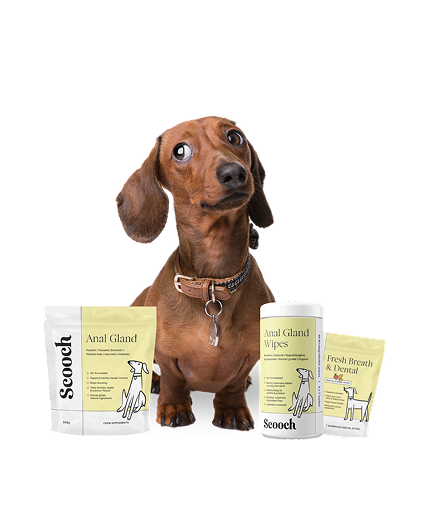
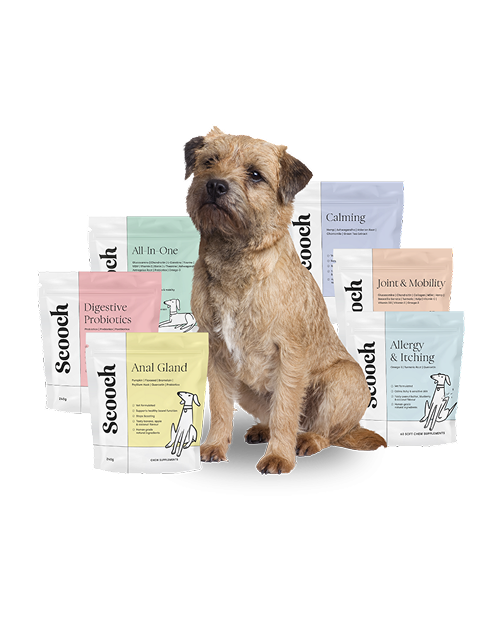
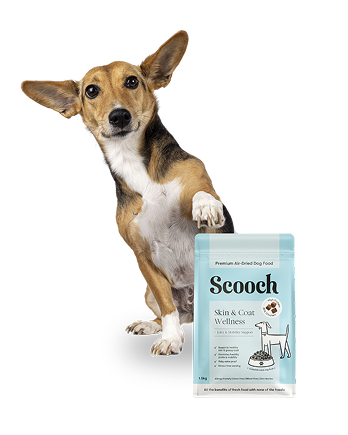
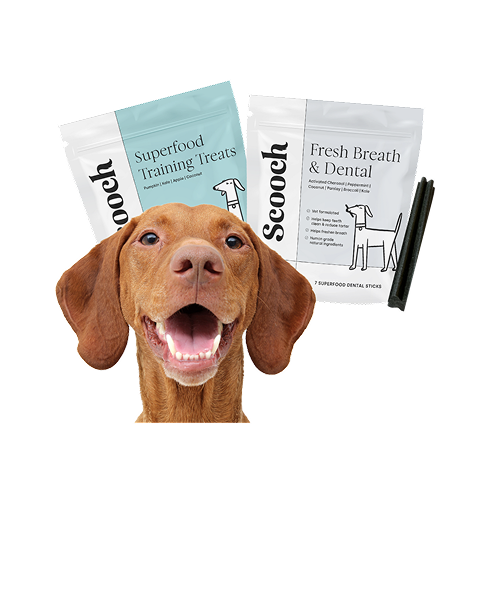
 Scooch health
Scooch health